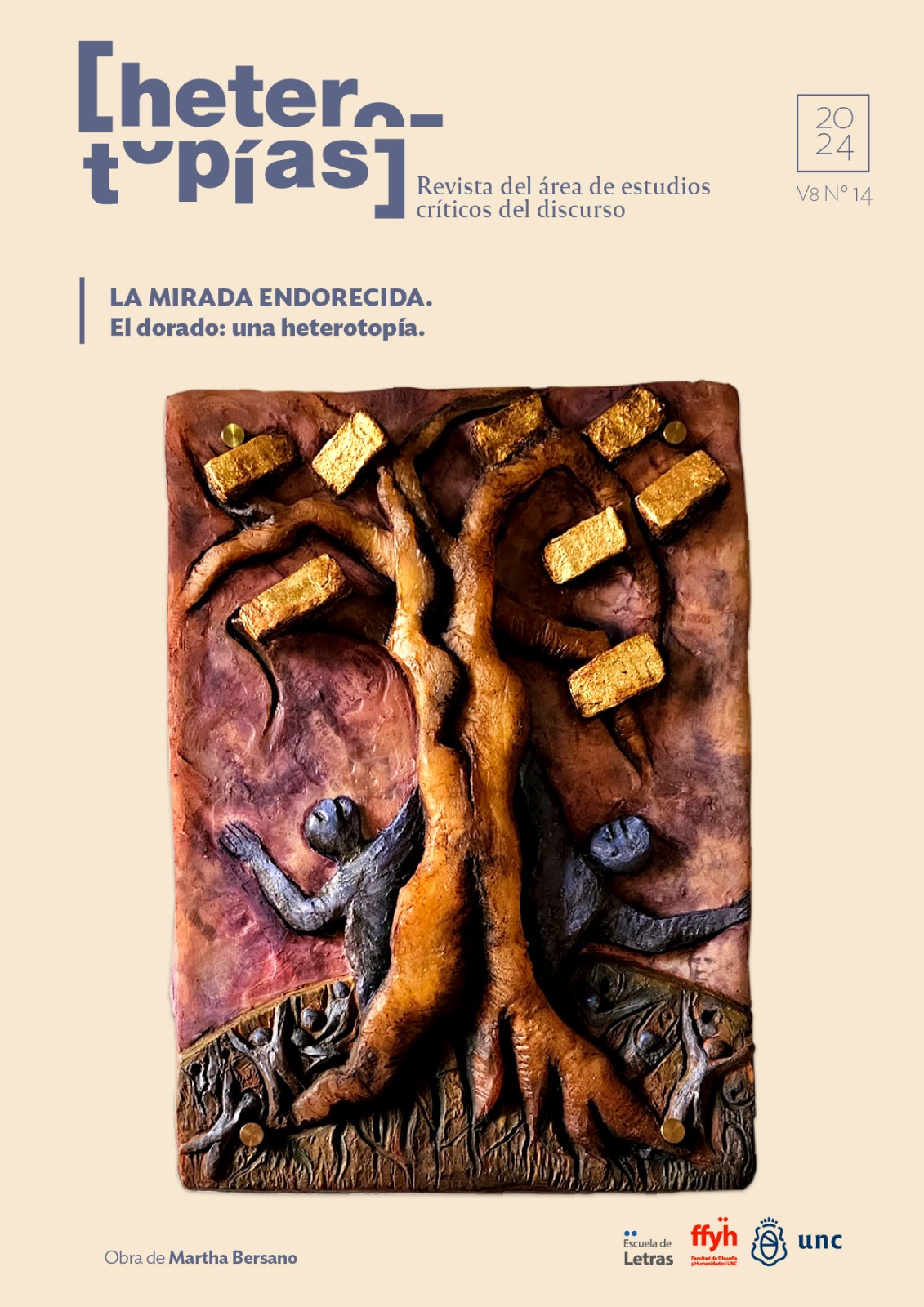A place for research in the humanities and social sciences. Some notes on the current situation
Main Article Content
Abstract
What place should we imagine and build for research in the humanities and social sciences when the meanings of the public and the common are being deeply contested by the new right wing? In a social and political conjuncture marked by controversial macroeconomic and cultural transformations that have altered democratic life as a whole and particularly impacted on the full exercise of the functions of the public university, it is necessary to reflect, among many other questions, on what research can mean and contribute in relation to the problems and challenges that this moment imposes on us. Indeed, it is necessary to ask under what conditions and assumptions university research should be configured at a time when access —individual and popular— to the public university is denied and challenged as a universal human right and a social public good that states must guarantee. It becomes unpostponable, for example, the task of reaffirming, resignifying and recontextualizing what has been conceived as the “right to research” (Hunziker and Smola, 2016) in the broader framework of the “right to higher education” (Rinesi, 2020). Taking into account the different dimensions —personal and collective— involved in the exercise of such rights, the notes we have gathered here intend to articulate some conceptual and contextual considerations from which research experiences can be tested to contribute, mediately or immediately, to the democratization of common life.
Downloads
Article Details
Section

This work is licensed under a Creative Commons Attribution-NonCommercial-ShareAlike 4.0 International License.
Those authors who have publications with this journal, accept the following terms: Those authors who have publications with this journal, accept the following terms:
a. The authors will keep their copyright and guarantee to the journal the right of first publication of their work, which will be simultaneously subject to the Creative Commons Attribution - Non-Commercial - Share Alike (by-nc-sa) Attribution License; no commercial use of the original work or any derivative works is allowed, the distribution of which must be done with a license equal to the one that regulates the original work.
b. Authors may adopt other non-exclusive license agreements for the distribution of the published version of the work (e.g., deposit it in an institutional telematic archive or publish it in a monographic volume) provided that the initial publication in this journal is indicated.
c. Authors are allowed and recommended to disseminate their work through the Internet (e.g. in institutional telematic archives or on their website) before and during the submission process, which may lead to interesting exchanges and increase the number of citations of the published work. (See The effect of open access).
How to Cite
References
Butler, J. (2006). Vida precaria. El poder del duelo y la violencia. Buenos Aires: Paidós.
Butler, J. (2010). Marcos de guerra. Las vidas lloradas. Buenos Aires: Paidós.
García, L. (2024, 16 de abril). Una solución austríaca a los problemas argentinos: ciencias y humanidades contra el “adoctrinamiento” oficial. La Tinta. Recuperado de https://latinta.com.ar/2024/04/16/ciencias-humanidades-contra-adoctrinamiento-oficial/
Giorgi, G. (enero-junio, 2024). Contra el aturdimiento. Notas de escucha. Heterotopías, 7(13), 1-16. Córdoba. Recuperado de https://revistas.unc.edu.ar/index.php/heterotopias/article/view/45386
Haraway, D. (2019). Seguir con el problema. Generar parentesco en el Chthuluceno. Bilbao: Consonni.
Hunziker, P. y Smola, J. (2016). Derecho a la investigación, conocimiento universitario y redes. En Rinesi, E., Cuello, C. y Ríos, L. (Comps.). Hombres de una república libre. Universidad, inclusión social e integración cultural en Latinoamérica (pp. 291-310). Los Polvorines: UNGS.
Grinberg, S. (2019). Presentación. En Kozel, A.; Bergel, M.; Llobet, V. (eds.) El futuro: miradas desde las Humanidades, San Martín: UNSAM edita, 2019. Recuperado de https://www.funintec.org.ar/_dev/wp-content/uploads/El_futuro_miradas_desde_las_humanidades_junio_2020.pdf
Masson, L. (2022). Escrituras rumiantes. Cuerpo, exceso, animalidad. Bogotá: Pajarera libertaria.
Molina, G. (2024, 21 de agosto) Huellas de humanidad en la lucha por la educación. La Tinta. Recuperado de https://latinta.com.ar/2024/08/21/huellas-humanidad-lucha-educacion/
Conferencia Regional de Educación Superior de América Latina y el Caribe (2018). Declaración de la CRES, junio de 2018, Córdoba. Recuperado de http://www.cres2018.unc.edu.ar/biblioteca/declaracion-final-cres-2018
Conferencia Regional de Educación Superior de América Latina y el Caribe (2024). Declaración de la CRES+5, marzo de 2024, Brasilia. Recuperado de https://cres2018mas5.org/wp-content/uploads/2024/03/Declaracion-CRES5-EJES-TEMATICOS_15-3-2024_ES.pdf
Centro de Investigaciones de la Facultad de Filosofía y Humanidades (2023). María Saleme de Burnichon, la Facultad y nosotrxs Memorias de sus luchas, ideas y proyectos. CIFFyH y Programa de Derechos Humanos, Facultad de Filosofía y Humanidades, Universidad Nacional de Córdoba. Recuperado de https://ffyh.unc.edu.ar/ciffyh/wp-content/uploads/sites/10/2023/12/MariaSaleme_DocumentosDigitalizadod.pdf
Rancière, J. (2014). El reparto de lo sensible: estética y política. Buenos Aires: Prometeo.
Rinesi, E. (2016). Filosofía (y) política de la Universidad. Los Polvorines: UNGS.
Rinesi, E. (2020). La Universidad como derecho de los ciudadanos y del pueblo. En Andrade, H. y Monzón, M. (Eds.). UNM 10 años: la universidad como derecho humano y de los pueblos (pp. 31-39). Moreno: UNM.
Saleme de Burnichon, M. (2021). Decires. Córdoba: Narvaja Editor. Recuperado de https://online.fliphtml5.com/zzanc/eezr/#p=1
